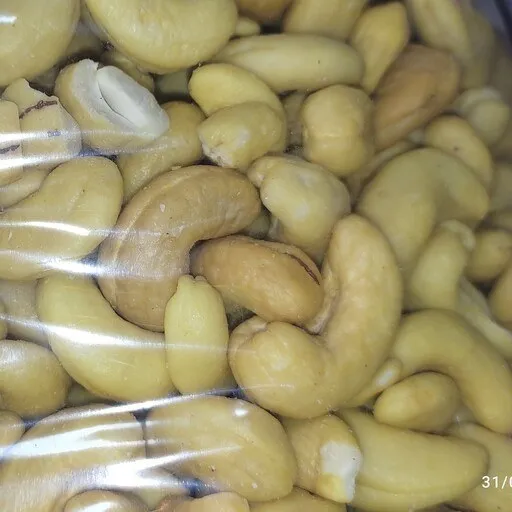The cashew nut industry in Karnataka, India plays a significant role in the state’s economy and its agricultural sector. Karnataka is one of the major cashew-growing states in India, along with Maharashtra, Kerala, and Goa. This summary explores the key aspects of the cashew nut industry in Karnataka, including its historical background, production trends, challenges faced, and opportunities for growth.
Historical Background:
The cashew nut industry in Karnataka traces its roots back to the early 20th century when cashew cultivation was introduced in the coastal regions of Karnataka. Initially, cashew trees were planted as a coastal windbreak, but later, their economic potential was recognized. Over the years, cashew cultivation spread to other regions of Karnataka, with an increasing number of farmers taking up cashew farming as a viable agribusiness.
Production Trends:
Karnataka’s climate, with its warm and tropical conditions, along with sufficient rainfall, provides favorable conditions for cashew cultivation. The state has witnessed a steady growth in cashew production over the years, contributing substantially to India’s overall cashew nut production. The major cashew-growing districts in Karnataka include Dakshina Kannada, Udupi, Uttara Kannada, and Chikkamagaluru.
Challenges Faced:
Despite its promising growth, the cashew nut industry in Karnataka faces numerous challenges that hinder its full potential. Some of the significant challenges include:
1. Climate Change: Variations in weather patterns, including erratic rainfall and prolonged dry spells, directly impact cashew cultivation, leading to fluctuating yields.
2. Pests and Diseases: Cashew crops are susceptible to pests and diseases, such as stem and root rot, anthracnose, and the cashew leafminer. These pose a threat to the productivity and quality of the crop, necessitating effective pest and disease management measures.
3. Lack of Infrastructure: Insufficient facilities, such as processing units and storage facilities, hinder the efficient processing and value addition of cashew nuts. This results in post-harvest losses and limits the scope for export-oriented value-added cashew products.
4. Market Volatility: Fluctuating prices, export regulations, and market demand uncertainties pose challenges to cashew farmers and processors in Karnataka. The industry needs stable market conditions and consistent demand to ensure profitability and sustainability.

Opportunities for Growth:
The cashew nut industry in Karnataka also presents several opportunities for growth and diversification. These include:
1. Increased Processing Capacity: Expanding the processing capacity within Karnataka can lead to value addition, thus enabling higher revenues and employment opportunities.
2. Promotion of Organic Cashew Farming: Karnataka has significant potential for organic cashew farming, given its favorable climate and growing interest in organic products globally. With proper certifications and marketing strategies, organic cashews can fetch premium prices in both domestic and international markets.
3. Export Potential: Karnataka’s strategic location and well-established transportation infrastructure make it suitable for cashew nut exports. Focused efforts to tap into the global market, especially for value-added cashew products, can open up new avenues for growth and profitability.
4. Diversification into By-Products: Cashew shells, which are by-products of the cashew nut industry, have multiple uses such as fuel, fertilizer, and raw material for various industries. Exploring these alternative uses can provide additional income streams and reduce waste in the industry.
Government Initiatives:
The government of Karnataka has taken various initiatives to support the growth of the cashew nut industry in the state. These include financial incentives, subsidies for modernizing processing units, skill development programs for farmers and processors, and the establishment of cashew research centers to address the industry’s technical challenges.
Conclusion:
The cashew nut industry in Karnataka holds significant potential for economic growth and rural development. By addressing the challenges and leveraging the opportunities, the industry can continue to contribute to the state’s agricultural sector and export earnings. It is crucial for stakeholders, including farmers, processors, and the government, to collaborate and implement sustainable practices that ensure increased production, value addition, and market diversification in the cashew nut industry in Karnataka.Title: The Cashew Nut Industry in Karnataka: Unlocking Business Opportunities
1. Overview of the Cashew Nut Industry in Karnataka:
The cashew nut industry in Karnataka has marked its presence on both the domestic and international fronts. With its favorable climatic conditions and a conducive ecosystem for cashew cultivation, Karnataka has emerged as one of the leading contributors to India’s cashew production. The industry has witnessed steady growth, propelled by increasing demand for cashew nuts and their by-products. This article explores key business aspects, challenges, and promising opportunities within the cashew nut industry in Karnataka.

2. Cashew Nut Cultivation and Harvesting Practices:
Karnataka’s cashew nut cultivation predominantly involves small and marginal farmers, with the majority practicing rainfed agriculture. Farmers employ traditional methods, including grafting and top-working, to ensure high-yielding cashew varieties. Harvesting typically takes place in February and March, requiring careful handling to maintain quality and prevent damage to the cashew nuts.
3. Processing and Value Addition:
The processing of cashew nuts plays a crucial role in enhancing their value and marketability. While Karnataka has numerous processing units, the industry has an opportunity to expand its processing capacity. Value addition through techniques such as roasting, salting, and flavoring can cater to diverse consumer preferences and boost sales in both domestic and international markets.
4. Export Potential and Market Dynamics:
Karnataka’s cashew nut industry has immense export potential, driven by its strategic geographic location and well-established transportation infrastructure. The demand for cashew nuts is increasing globally, with markets in the United States, Europe, and the Middle East being major consumers. To tap into these markets effectively, cashew producers need to adhere to stringent quality standards and certifications.
5. Organic Cashew Farming:
With growing consumer preference for organic products, Karnataka’s cashew nut industry has a significant opportunity to adopt organic farming practices. Capitalizing on the state’s favorable climate and promoting organic cashew cultivation can lead to premium pricing and improved market access. Proper certifications, partnerships with organic associations, and effective marketing strategies can enhance the value proposition of organic cashew nuts.
6. Challenges in the Cashew Nut Industry:
Like any other industry, the cashew nut sector in Karnataka faces several challenges that hinder its growth potential. Climate change-related uncertainties affect cashew plantations, while pests and diseases pose significant threats to crop health. Additionally, the lack of adequate processing infrastructure and market volatility add to the industry’s difficulties.
7. Government Support and Initiatives:
Recognizing the importance of the cashew nut industry, the Karnataka government has implemented various initiatives to support its development. These include financial incentives, subsidies for modernizing processing units, training programs for farmers, and the establishment of cashew research centers. Government support enhances the industry’s competitiveness and promotes sustainable growth.

8. Diversification into By-Products:
Cashew nut shells, a by-product of the industry, have untapped potential. They can be used as a source of fuel, pressed to extract cashew nut shell liquid (CNSL), or processed into various industrial products. The industry can explore collaborations with other sectors to maximize the utilization of cashew shells, thereby diversifying revenue streams and minimizing waste.
9. Investing in Research and Development:
Continuous research and development efforts are pivotal for the sustained growth of the cashew nut industry in Karnataka. Collaborations between government bodies, research institutions, and industry stakeholders can further enhance cashew cultivation techniques, pest control measures, and post-harvest processing technologies. These advancements enable higher yields, improved quality, and increased profitability.
10. Strengthening Market Linkages:
To harness the full potential of the cashew nut industry, the stakeholders need to strengthen market linkages. Collaborations with traders, exporters, and retailers can ensure a steady demand and consistent pricing for cashew nuts. The establishment of farmer-producer organizations and cooperatives can empower farmers, enhancing their negotiating power and access to markets.
11. Skill Development and Human Resource Management:
Investing in skill development programs for farmers and industry workers is crucial for fostering innovation, improving efficiency, and maintaining quality standards throughout the value chain. Training initiatives on modern cultivation techniques, post-harvest management, and processing operations can enhance the competitiveness of the cashew nut industry in Karnataka.
12. Sustainable Practices and Environmental Responsibility:
With environmental sustainability gaining prominence, it is essential for the cashew nut industry in Karnataka to adopt sustainable practices. This includes water conservation techniques, organic farming methods, and exploring renewable energy sources for processing units. By implementing eco-friendly measures, the industry can mitigate its environmental impact and contribute to a greener future.
Conclusion:
The cashew nut industry in Karnataka holds immense potential for business growth and socio-economic development. By addressing challenges, leveraging favorable market conditions, and implementing sustainable practices, stakeholders can unlock promising business opportunities. The government’s support, coupled with investments in research and development, capacity expansion, and market linkages, can further propel the cashew nut industry in Karnataka towards greater heights. Collaboration and continuous innovation are crucial for ensuring the industry’s competitiveness, profitability, and sustainability in the global market.










